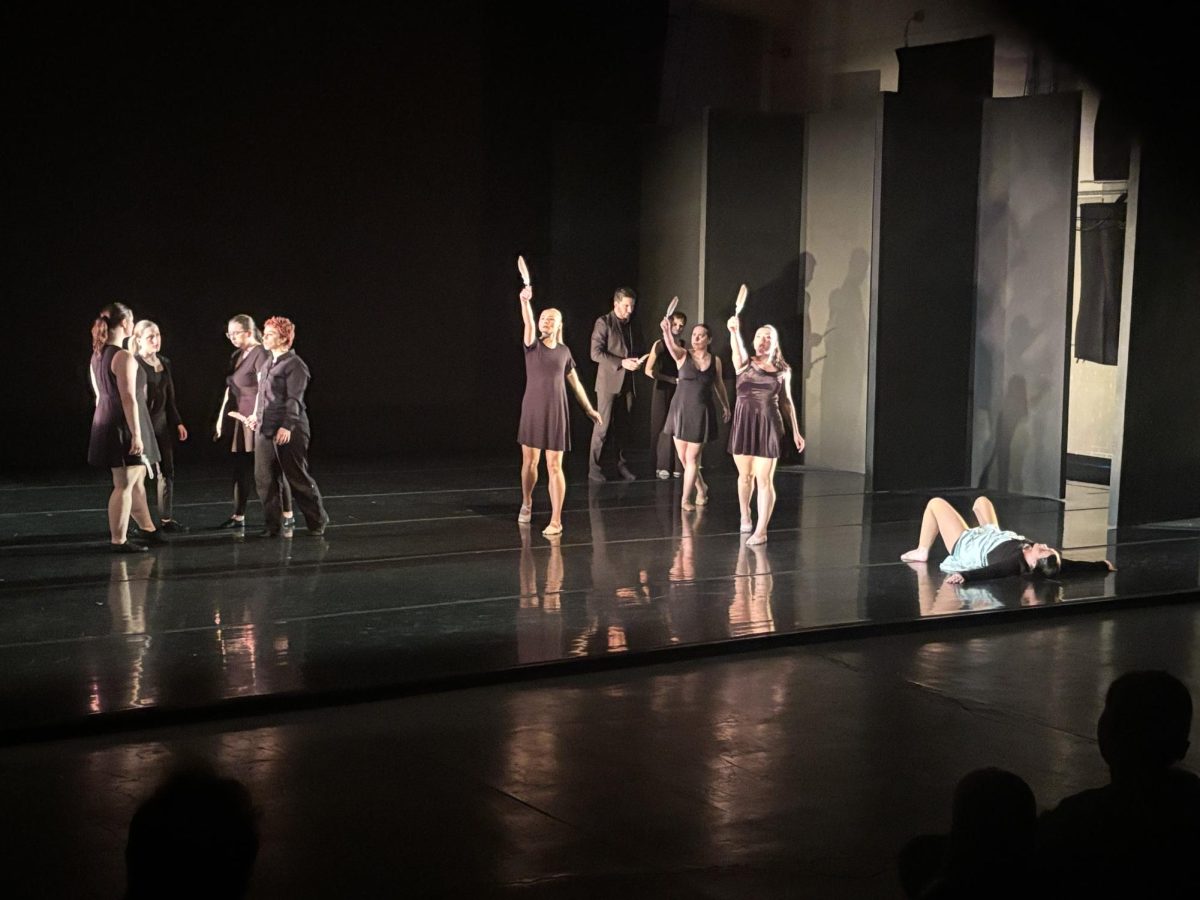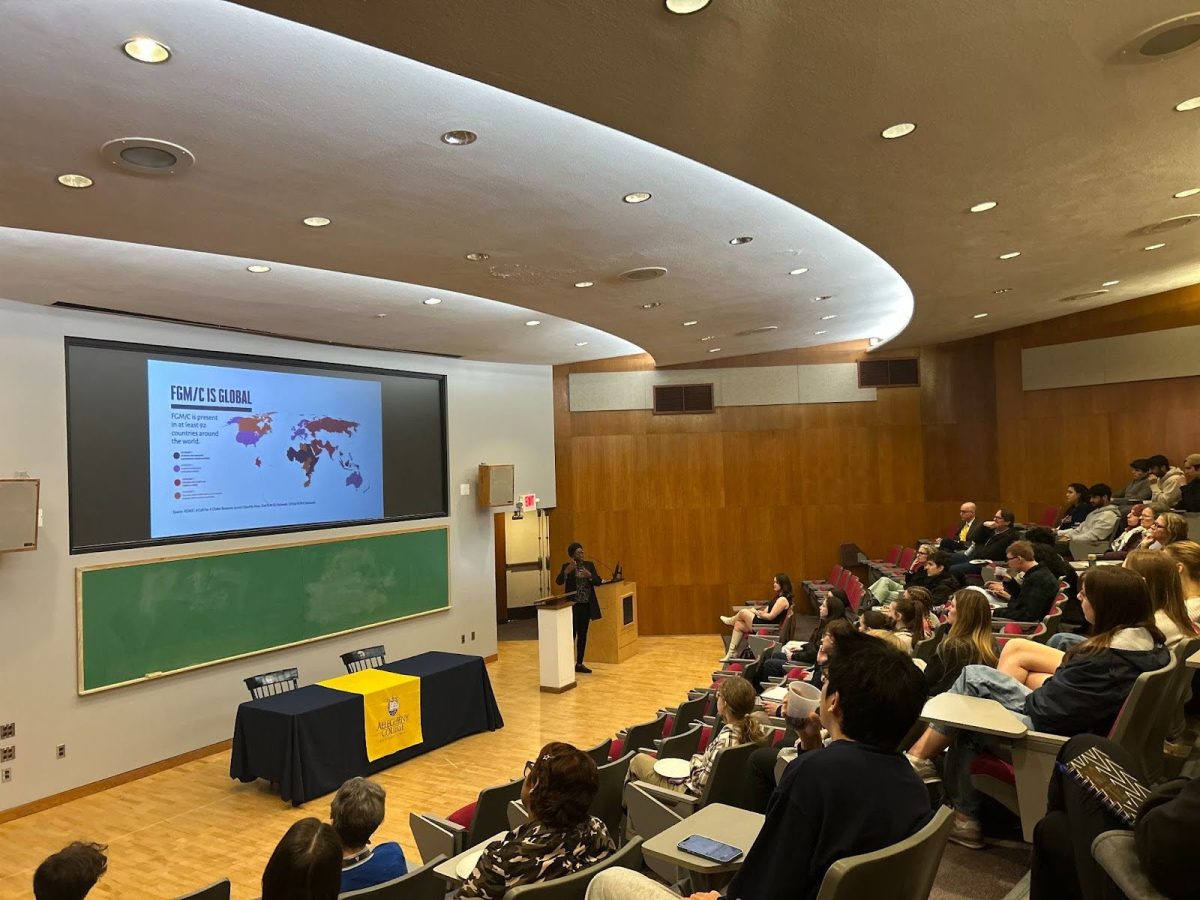Professor John MacNeill Miller recently published his book “The Ecological Plot: How Stories Gave Rise to a Science.”
A work of literary history that grew out of Miller’s interest in 19th century literature, the environment and ecology, the book was in the works for 12 years before being published in September by University of Virginia Press.
For Miller, the motivation behind the book was clear.
“The inspiration was really sort of a sense that something was missing from the literary record, and that thing was like the non-human world, and wanting to restore that,” Miller said.
“The Ecological Plot” follows the evolution of a particular form of storytelling and its development between writers. Miller argues that this form of storytelling made contributions not just to literature, but also to modern economics and the discipline of ecology.
Novelist Lydia Millet reviewed Miller’s book in The Washington Post on Oct. 9. Millet reiterated the impact of Darwin’s theories on the history of literature and novelists while also complimenting the distinctive ideas Miller presents. She described his book as an exploration of “the entangled histories of literature, ecology and economics.”
“Miller shows how this also played out in the works of Victorian novelists like George Eliot and Thomas Hardy, whose fictions featured interconnected, multiplot structures stretching across social classes, in which small happenings had powerful ripple effects through a larger community,” Millet wrote.
Miller, a native of Baltimore who attended Duke University as an undergrad, began the book in graduate school at Rutgers University as a dissertation about animal characters, but later decided to start from scratch. He outlined an initial writing process of a different topic, then a discovery process that led to a total rewrite — modeling his revisions after popular science writing. In it, he aimed to discuss the political and ethical problems that arise when such creatures and stories of society are ignored.
He identified stories of interconnection by 19th-century British writer and social theorist Harriet Martineau, who found huge success explaining economic theories to popular audiences, as a key discovery for his project and an influence in the story he was working to illustrate.
He identified stories of interconnection by 19th-century British writer and social theorist Harriet Martineau, who found huge success explaining economic theories to popular audiences, as a key discovery for his project and an influence in the story he was working to illustrate.
“I realized I wanted to write something that was actually — especially because it’s interdisciplinary as a project — relatively accessible,” Miller said.
While Miller has previously published academic articles, this is his first book. Taking inspiration from a class he currently teaches, literature and science, he has tentative plans to continue writing in that direction.
“What can we learn about how science works if we start thinking of science as a process that’s really about composing language a lot of the time?” Miller said. “At least in terms of getting your findings out there?”
Millet, in her Post review, applauded the answers Miller provides to such questions in his new book.
“What Miller stresses so well in ‘The Ecological Plot’ is the loss of intellectual richness and possibility wrought by the siloing of sciences and the categorical separation of humanness from the rest of the living world,” she wrote. “Since the dictates of capitalism and the survival of ecosystems are now at lifer-or-death loggerheads, an urgent need exists to examine that history of exclusion — and ideally, to right the wrong.”
Gaining recognition from an acclaimed newspaper is undoubtedly a significant achievement for Miller, and his impact as an educator is also recognized by his students.
Madison Boring, ’25, is a creative writing studies major who has worked closely with Miller during her time at Allegheny. She has taken four of his courses and recently completed a six-week summer research project with him.
“He asks deeper stuff, like, right off the bat, he expects a lot from his students,” she said. “But I think that’s also why I’ve learned the most right in his classes, plus his topics are pretty interesting.”
Many of his classes revolve around nonhuman topics and push students to explore deeper subjects. Boring describes his classes as being “thought provoking” and “discussion based.”
Remnants of his authorship can be seen in his classes and teaching style as well. Working under his advisement and being an aspiring author herself, Boring found his passion for writing to be motivating.
“His eyes just, like, lit up,” she said, “and he was just so excited to talk about it and the process of writing it.”
In the classroom, his experience as an author is evident through the questions he asks and direction of the course. He develops a balance between critical writing and creative thinking within the curriculum, combining multiple fields of literature.
“The style of how he leads his class,” Boring said, is “just kind of guiding you to the right answer without giving it to you, which is how literary criticism works.”
Categories:
Prof. John MacNeill Miller publishes first book
Story continues below advertisement
0
More to Discover




